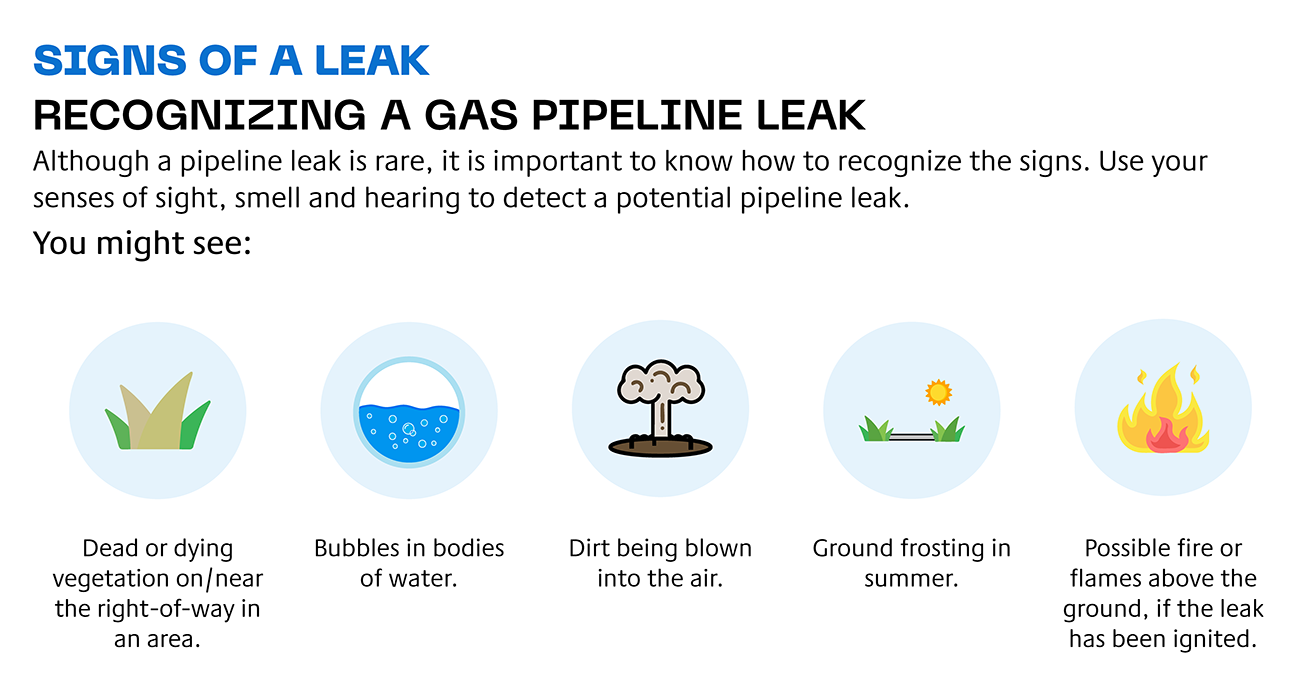Frequently Asked Questions
What are the consequences of unsafe digging?
In most provinces and states, it is a legal requirement to contact your local One Call service before digging or excavation. These consequences may include:
Fines and repair costs to fix the underground utility
- Provincial, state or federal regulators can levy hefty fines to both the person excavating and the company responsible, depending on the local regulations
- Repairs to utilities often cost more than the value of your original project, not including reclamation and clean-up costs
Interrupted services such as electricity, gas and water
- Underground transmission systems and utilities carry essential and critical services for the community. Interruptions to these are more than just minor inconveniences; they can put people, businesses and livelihoods at risk
- Some transmission systems and utilities are buried as little as 0.3 m or 12 inches below the surface, so even a simple shovel can cause serious damage
What if I already have a landowner agreement?
If the work is not included in the scope of the existing agreement, you would need a new request or agreement in place before starting work.
What if I already know where the pipeline is?
Even if the pipeline is marked, a representative must be present to accurately read the depth and to ensure TC Energy processes are followed.
I’ve done similar work in the area, why do I need a new approval?
Pipeline depth and route can vary, or the depth of cover may have changed due to erosion or other factors. Each project needs a new written consent.
I know where the pipeline is, do I still need to make a One Call?
You can never be sure where underground transmission system and utilities are unless they have been marked by a professional. Transmission systems and utilities can shift from erosion or natural forces or new ones may have been installed without your knowledge. Using the free One Call service allows you to conduct your work safely.
How do I contact my local One Call service?
Luckily there are resources to help you reach your local service easily. You can visit www.ClickBeforeYouDig.com to find your local One Call service, as well as other useful safe-digging rules and regulations in your province/state.
When do I need to make a One Call?
You need to make a locate request anytime you are disturbing the ground. This includes digging, piling material, paving or even driving equipment over a right-of-way.
What is a crossing agreement?
A crossing agreement or written consent is an agreement between you and the pipeline operator that allows you to conduct your work safely with the permission and understanding of the pipeline operator. Any changes to your work need to also be approved to ensure your safety.
How do I know if I need a crossing agreement?
If you plan to do any work on a right-of-way, within 30 meters of the right of way, or access the right-of-way while conducting your work, there’s a good chance you need a crossing agreement. To find out for sure, you can either make a One Call and wait for the pipeline operator to contact you, or you can contact the pipeline operator directly through their crossings team. Contact information can be found on this page.
What is the “prescribed area”?
If The prescribed area or controlled area in Canada is the area that extends 30 meters for an AER or CER line, 10 meters for a BCER line on either side of the pipeline centerline. Ground disturbance within this area requires written consent prescribed area visual?
What are signs of potential leaks?
What you may smell
Natural gas
- Not all transmission pipelines that transport natural gas are odourized, but some may have a slight hydrocarbon smell. Distribution pipelines that transport natural gas to homes and businesses are odourized and could smell skunk-like or similar to rotten eggs.
What you may see
Natural gas
- Dead or dying vegetation on or near a pipeline in a normally green area
- Water bubbling or blowing into the air at a pond, creek or river
- Dirt being blown or appearing to be thrown into the air
- An accumulation of ice or frost over the pipeline (in the summer)
What you may hear
Natural gas
- A hissing, roaring or bubbling sound

DO YOU KNOW WHAT TO DO IN CASE OF A LEAK?
If you recognize any of the signs of a leak listed on this page, you should follow these steps:
- Move away and upwind of the area, shutting off any machinery and avoiding use of any equipment or devices, this includes cellphones, that could cause a spark.
- Call '911' as soon as you are in a safe location and describe the situation to the operator.
- Look for a nearby pipeline marker in a safe area for the pipeline operator's emergency contact number.TC Energy's emergency numbers can be found on our Contact page.
- Warn others to stay away and follow the instructions provided by the 911 operator.